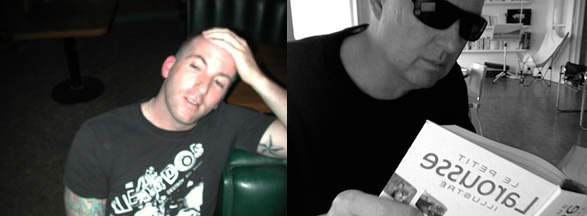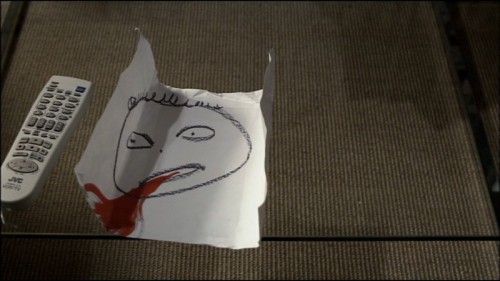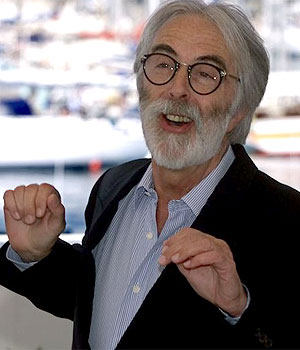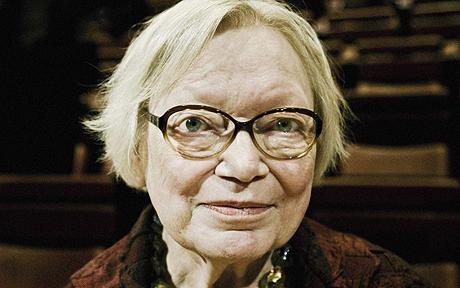A Conversation with Jean-Philippe Toussaint

My friend (and yours) Jim Ruland had a chance to speak to Jean-Philippe Toussaint recently, and sent this interview. I was going to run it on Hobart, but the schedule didn’t allow for it to appear in a timely manner there. Instead, we are cross posting it here at HTML Giant and on Hobart’s lovely blog to get the interview as much attention as we can.
Jean-Philippe Toussaint is the author of nine novels. Originally, published in France, the slender books have secured the Belgian author a reputation as a stylist who favors impressions over plot, comic situations over character development. Since 2007, Dalkey Archive Press has been publishing Toussaint’s work in English, trickling out two or three novels a year to a growing audience of eager enthusiasts for the quirky little books.
The most recent novel, Self-Portrait Abroad, released earlier this month, features a Belgian author traveling to cities in Europe and Asia. A sensual train trip to Prague, a visit to a strip joint in Nara, a victory in a lawn bowling tournament in Cap Corse are described in Toussaint’s quintessential style. READ MORE >
Way to check those facts, Helen.

My buddy Travis (who has a new novel called Off We Go Into the Wild Blue Yonder out now, and a fancy new piece on Book Notes at the Largehearted Boy blog) made a silly, offhand statement on Twitter. It read: “I think we should all also boycott Arizona Iced Tea because it is the drink of fascists.” He was kidding. What happened next is not entirely easy to follow, timeline-wise. Travis—as you will read in the following interview—believes the quote was grabbed by someone on a forum. Most of the links I’ve found by looking up “Travis Nichols” and “Drink of fascists” seem to lead back to an article on the NY Daily News site written by a Helen Kennedy. Hard to say where she first saw it. (I was considering trying to get ahold of Ms. Kennedy, but on Thursdays I pretend to be a cowboy, not a journalist.)
Then Rush Limbaugh found it. And then so did some other people. Hilarity ensued.
A reporter from the New York Times actually contacted Travis, and wrote about the little dust up here.
I interviewed Travis. It’s after the jump.
READ MORE >
The Rules
The Guardian has published ten rules for writing fiction from several different writers. Find Part 1 here and Part 2 here. My favorite are Jeanette Winterson’s rules which include:
2. Never stop when you are stuck. You may not be able to solve the problem, but turn aside and write something else. Do not stop altogether.
7. Take no notice of anyone with a gender agenda. A lot of men still think that women lack imagination of the fiery kind.
9. Trust your creativity.
What are your rules?
INTERVIEW WITH MICHAEL HANEKE
We did the interview in a hotel in midtown Manhattan. He was slender and well-dressed with a beard the color of Malamute fur. As others have observed, he’s disarmingly pleasant in person—even jolly. If he weren’t so thin, he could be Santa Claus.
Our Q & A is below. I’ve condensed some of my questions and remarks to streamline/clarify, and so you don’t have to read as much from me, but I’ve preserved just about every word Haneke said, intelligibility of the tape allowing. His English is fairly good, but unless otherwise noted, he’s speaking through a translator.
Azorno
It fell completely silent. I felt like a diver who finds himself at the bottom of the ocean one minute and on solid ground the next, unable to hear whether the others are saying he’s dead or alive because he’s encapsulated in a silence as vast as if he’d brought the ocean up with him and it surrounded him now like a hue bell that no one could pass through without drowning. The fluttering plant curtains filtered the light that flickered over my eyelids as over a gray sandy bottom. I dozed off in this air that was dense and warm and green, and also poisonous, because she had already discovered me, and then, with the greatest silence, sprayed her poison in through the windows, a green poison that quickly stripped all the leaf-flesh off my human body, exposing my ribs, fluids, and reproductive system, causing me to cave in, collapse, crumble, almost vanish; yes, there was actually only a little dust remaining, and that could be easily brushed off the sheet before lying down, as if there were a little sand between the toes the evening before. I got up. A couple of drops fell from my crotch. They spread out and became a little gray spot on the sheet. A little head with ears.
Inger Christensen, Azorno, pp. 22-23 (translated from the Danish by Denise Newman)
—-
Inger Christensen died last year. She wrote very many books. There are no interviews with her online.
Happy New York (Part I)
 I don’t think the Rust Buckle Books (more on these in Part II) bee
I don’t think the Rust Buckle Books (more on these in Part II) bee r can logo (below) is by Brian Calvin, but seeing it reminded me–via Flood Editions, where Calvin’s heads (Half-Mast, 2001, and Killer, 2006) can be found on Graham Foust’s Necessary Stranger (2007) and A Mouth in California–that “Head”, his show at Anton Kern, closes on January 16.
r can logo (below) is by Brian Calvin, but seeing it reminded me–via Flood Editions, where Calvin’s heads (Half-Mast, 2001, and Killer, 2006) can be found on Graham Foust’s Necessary Stranger (2007) and A Mouth in California–that “Head”, his show at Anton Kern, closes on January 16.
I’m sure New Yorkers themselves go elsewhere (where?), but “Goings On About Town” is still my first stop to find out what I get for living where else. Although there’s always an abundance in ART (the above BRIAN CALVIN, WALLACE BERMAN – Jan. 9; “FROTTAGE” – Jan. 17) and MOVIES (Tati–tonight, Trafic–at the MOMA: see also, under ART, OROZCO) that I wish I wasn’t missing, rarely does READINGS AND TALKS make me want to move.
Ever abbreviated (possibly defensible in print, but why all the white space online, where this week there were three total readings–no talks–compared to eight pages of movies?), the section is never more so than in its annual capsule announcement of the reading of the year:
A hundred and forty poets and performers, including Penny Arcade, Yoshiko Chuma, Steve Earle, John Giorno, Taylor Mead, Judith Malina, Jonas Mekas, Eileen Myles, and Genesis Breyer P-Orridge, gather for the thirty-sixth annual marathon reading at the Poetry Project.
What about the other 130 plus poets (from Ana Bozicevic to Magdalena Zurawski) and performers (Philip Glass) and performers (Ostashevsky)? Is there another reading anywhere that, thanks to the Project’s own Arlo Quint (and Emily XYZ) covers every letter? But I guess I shouldn’t quarrel with an alphabet that begins with Penny Arcade and ends with Genesis Breyer P-Orridge. Indeed I would have gone to hear the listed Ms alone: where else could you find Mead (who turned 85 on New Year’s Eve), Malina (b. 1926 in Germany, godmother of the American avante garde), the Lithuanian born Mekas (godfather of same, turned 87 on Christmas Eve), and Myles (the only Presidential candidate who’s written a speech about Robert Walser?), not to mention Machlin, Marinovich, (Chris) Martin, and Mesmer, among Many More (see list-in-progress, with links, after the leap), in one audience, let alone on one stage?
CAConrad, the poet of the year if ever there were one (when’s the last time anyone had books as good as Advanced Elvis Course and The Book of Frank come out in the same year?), has an anecdote about the most memorable line from the 2005 reading in the comments section of this to-be-revisited list. Can anyone give us some highlights from yesterday’s event? Will anything else in 2010 approach this gathering in sheer skylight? READ MORE >
Conversation with the fabulous Kathleen Rooney
Kathleen Rooney is a rock star, and don’t you doubt that! Rooney has written & published a gizzillion books, most recently FOR YOU FOR YOU. She’s also co-editor/publisher of Rose Metal Press.
Here’s the thing about Rooney: You see her and she’s got this inky hair, long, and she’s usually wearing black. She’s a bit intimidating from afar. (People in black are usually intimidating to me. You’ll notice I’ve mentioned attire for both Rooney & Jeremy Davies, yeah?) Then, you start talking to her & she’s chipper as anything. Then, you read her poetry & damn, if you’re not completely knocked far far away!
What I mean is: If this interview/conversation isn’t enough to make you fall in love, read any of her ten thousand books & you’ll be convinced. You can try them out here or here or here or here.
Best Comment Exchange Ever?
Maybe the sommelier will pick this up later but: This just in: READ MORE >
It Goes On Between People

It’s sometimes said that a great novel makes a less promising basis for a film than a novel which is merely good. I don’t think that adapting great novels presents any special problems which are not involved in adapting good novels or mediocre novels; except that you will be more heavily criticized if the film is bad, and you may be even if it’s good. I think almost any novel can be successfully adapted, provided it is not one whose aesthetic integrity is lost along with its length. For example, the kind of novel in which a great deal and variety of action is absolutely essential to the story, so that it loses much of it’s point when you subtract heavily from the number of events or their development.
&
You might wonder, as a result of this, whether directing was anything more or less than a continuation of the writing. I think that is precisely what directing should be. It would follow, then, that a writer-director is really the perfect dramatic instrument; and the few examples we have where these two peculiar techniques have been properly mastered by one man have, I believer, produced the most consistently fine work.
Some British guy is saying Jesus came to England to “study” and build a church because ” little was known about his life before age 30.” Sure! Why not? I have a feeling this guy is some kind of reincarnation of Chaucer’s Pardoner, because little is known about the afterlife. More importantly, what degree would Jesus get? I’m thinking an MFA. Best attempt at His first submission to His poetry workshop wins my blessing and/or the bones of a dead pig saint.




